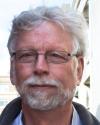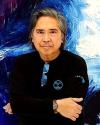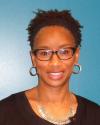The strength of the U.S. division lies in its breadth and diversity. The faculty cover all periods of American history and offer many different emphases and methodological approaches. Students are encouraged to take courses throughout, and even outside of, the department and to explore diverse approaches to their chosen topic. Among the division's particular thematic strengths are Race and Ethnicity, African-American, Women and Gender, the West, and Labor. In addition, the department is one of the few to offer expertise and graduate training in the areas of African-American Intellectual, Native American, and Environmental history.
Graduate students may develop fields that are defined thematically or methodologically (e.g., Asian-American, the West, Cultural) as well as fields that are defined chronologically (Colonial, Nineteenth Century, Twentieth Century). Students are encouraged to study key topics in U.S. history (Ethnicity, Gender, Colonialism) in comparative or transnational frameworks. Beyond the department's core faculty in U.S. history, students also benefit from the involvement of faculty in American Indian Studies, American Ethnic Studies, Gender, Women, and Sexuality Studies, and Urban Design and Planning.
The University of Washington maintains an outstanding library for studying American history. It has an excellent book and journal collection, a rapidly expanding network of on-line primary and secondary sources, and an extensive collection of microforms, government documents, and scientific publications. The library's Special Collections division documents the history of the Pacific Northwest and includes among its holdings substantial material on the region's ethnic and minority communities and an impressive photography collection. In addition, the regional repository of the National Archives and Records Administration is located a few minutes from the campus.
Special resources for students studying American history at the University of Washington include the Center for the Study of the Pacific Northwest, which houses The Pacific Northwest Quarterly and promotes research and teaching related to the local region and the American West, and the Harry Bridges Center for Labor Studies (co-sponsored by the departments of History and Political Science), which hosts speakers and conferences and funds research related to labor. Both Centers offer financial support to graduate students. In addition, the department has several fellowships designated for incoming students in American history.
Associated Faculty

Susan A. Glenn
Professor, Samuel and Althea Stroum Chair in Jewish StudiesGraduate Studies Description
Division: United States History
Students may emphasize the cultural and/or social history of the U.S. in the long twentieth century (since the l870s). Topics of study include immigration and ethnic group life, social and political movements, women and gender, race relations, expressive and popular culture.
Division: Comparative History (Comparative Gender & Comparative Ethnicity & Nationalism)
A field in comparative gender with Professor Glenn will emphasize the history and historiography of gender and women's history. Areas of study include the relationship between gender and race, ethnicity, nationalism, class, and social movements as well as the significance of gender ideology in the production and consumption of expressive and popular culture. Comparisons will focus on the U.S. and another geographic area (in conjunction with another faculty member).
Students may also work with Professor Glenn on a sub-field of Comparative Ethnicity and Nationalism with a focus on Jewish history/identity/ethnicity; Jews, Blacks, and the racial imaginary in the American and European contexts..

James Gregory
ProfessorGraduate Studies Description
Division: United States History
My graduate teaching fields are tailored to the individual interests of students. We will work out precise subject areas and reading lists as we proceed. Subject to those negotiations, students generally choose one of the following concentrations:
Twentieth Century U.S.
I prefer to treat this as a broad field that covers the full chronological sweep of the century. Students will read widely, developing a modest familiarity with the literature on a large number of subjects (including politics, culture, foreign relations, race, gender, labor, region, urban). Depending upon interests, certain issues and time periods will be developed in more depth.
Class, Race, Labor, and Political Economy
This concentration joins the subject of American political economy with those of labor history and race/ethnic formation covering both the 19th and the 20th centuries.
Regions, Migration, Immigration
This concentration explores place and mobility in American history with readings that examine how place identities and regional political economies have been formed and maintained and how migrations (both from abroad and internal) reshape places and people.

Bruce Hevly
Associate ProfessorGraduate Studies Description
Division: History of Science
History of Science
A general field, designed to begin preparation of graduate students aiming to teach undergraduate courses or pursue research in history of science during their careers, and to introduce the general historiographical framework and development of the field. The field can be modified to meet the student's particular interests. This would normally be the second field for students interested in becoming historians of science.
Science and Technology Studies
"STS" engages in the variety of new approaches to understanding the sciences which have emerged in the wake of Thomas Kuhn's Structure of Scientific Revolutions (1962). Drawing from diverse academic disciplines, such as philosophy, sociology, and anthropology, scholars in the 1970s and 80s developed powerful and controversial new methods of analyzing science as a social construction or network, and critiqued the role of gender and race in scientific practice, theory, and organization. More recently, cultural and anthropological studies of science have presented new means to interpret science alongside alternative systems of human (and even 'non-human'!) action and belief. Postcolonial studies of science and technology have traced science's interactions with empire, development, and indigenous knowledges. Students taking this field will engage with these diverse approaches of recent STS through reading, writing, and discussions. A knowledge of the tools and concepts of STS has been indispensable for recent history of science, and the field will deepen and broaden participants' perspectives on science.
History of Technology
A general field, designed to begin preparation for graduate students aiming to teach undergraduate courses or pursue research in history of technology during their careers, and to introduce the general historiographical frameworks and development of the field. The field can be modified to meet the student's particular interests; in the past, students interested in environmental and western history have been important members of the seminar.
History of Physics
Introduction to the literature, practices, and current problems in the study of the emergence and development of physics since the beginning of the nineteenth century. Professor Hevly has particular interests in nineteenth-century British and twentieth-century American cases, but other concentrations are possible as well.
History of Terrestrial Physics
This is a more specialized field, which aims to explore the history of terrestrial physics as an alternative to the standard view in history of modern physics which has focused on the reductionist program of atomic and sub-atomic sciences. Topics include various studies since the eighteenth century: terrestrial magnetism and electricity, auroral studies, glaciology and ice caps, ocean sciences, studies of the upper atmosphere. Also considers expeditionary science, and developing connections between science and state.
Science, Technology and the Military
Exploration of the institutional, cultural and conceptual relationships between science, technology and the military components of that state since the early modern period. This field centers on the modern military as a set of self-consciously technologically-conditioned communities, and on science and technology as constrained by the aspirations, commitments and structures of the modern state. Depending on the student's area of interest, the field may also be oriented towards issues of science and gender, cyborgia, space programs, or other issues of interest. Professor Hevly's particular interest is the development of intellectual systems to enlist the Earth into reliably-functioning technological systems.
Division: United States
History of Science and Technology in American Culture
This field is designed to explore science and technology in the context of American social, cultural, or intellectual history. Undertaking sufficient comparative history to justify claims about American peculiarities, the field will look for the ways in which American contexts since the seventeenth century influenced the content and construction of science and technology. It might be particularly appropriate for American historians interested in ways to integrate the history of science and technology into research and teaching programs in the broader field.

Moon-Ho Jung
Professor, Harry Bridges Endowed Chair in Labor StudiesGraduate Studies Description
Division: United States
The field of Asian American history encompasses a broad range of topics and methodologies that often cross disciplinary and geopolitical boundaries. Students pursuing this field are expected to read widely and critically, with an emphasis on historiographical shifts and debates. In particular, they will investigate how the field has evolved over time and challenged and reproduced traditional narratives of U.S. history. Students are also encouraged to converse with a vibrant community of faculty and graduate students specializing in Asian American Studies at UW.
Division: Comparative History (Comparative Ethnicity & Nationalism)
Students will explore how race and nation have been articulated in U.S. history, framed theoretically and globally. Students may choose to emphasize particular time periods, theoretical approaches, and geopolitical frameworks as they study how racial concepts, representations, and practices shaped American national identities. Possible topics of concentration include whiteness, imperialism, labor migration, and transnational social movements.

Margaret O'Mara
Professor, Scott and Dorothy Bullitt Chair of American HistoryGraduate Studies Description
Division: United States
Twentieth Century
Development of the U.S during the "very long" 20th C., from 1877 to the present, with particular emphasis on the changing relationship between state and society, economic and technological shifts, and struggles for civil and economic rights.
- For a first field HSTAA 522 is required, as well as at least one directed reading in coordination with the HSTRY 596-7 paper.
- For those working on 20th C. US as a second field, HSTAA 522 is required. Depending on the previous preparation of the applicant, an additional directed reading may also be recommended.
- For a third or fourth field in this subject a directed reading (HSTRY 600) with me is required; HSTAA 522 is recommended.
Urban History
Urbanization and the suburbanization of the U.S. from the colonial era to the present, including consideration of comparative examples. Students will read seminal works from the urban historiography and key contributions to the field from social history, intellectual history, and political history, as well as from the disciplines of urban planning, public policy, and sociology.
- Required course work for a first field includes HSTAA 590 (Urban History) or a directed reading (HSTRY 600) in urban history. I strongly encourage coordinating this supervised directed reading to occur at the same time as the first quarter of the HSTRY 596-7 seminar paper sequence.
- For a second field students should complete HSTAA 590 (Urban History) or a directed reading (HSTRY 600) in urban history.
- For a third or fourth field in this subject a directed reading (HSTRY 600) is required.
All students of urban history are strongly encouraged to take or audit one or more of the many urban-related graduate courses regularly offered in other departments and colleges, many of which can be found by consulting the database of faculty affiliates of Urban@UW (http://urban.uw.edu). Students also can work with me to identify relevant courses and faculty.
Policy and Political History
Development of the U.S. state and political culture, with particular emphasis on the 20th C. Readings will consider the role of the federal government, contested and dynamic definitions of citizenship, expansion and contraction of the national state, the role of extra-governmental institutions, and grassroots activism on the left and the right.
- Required course work for a first field includes completing HSTAA 590 (American Political History), or a directed reading (HSTRY 600) in political history. I strongly encourage coordinating this supervised directed reading to occur at the same time as the first quarter of the HSTRY 596-7 seminar paper sequence.
- For a second field HSTAA 590 (American Political History) is required, or a directed reading (HSTRY 600) with me in political history.
- For a third or fourth field a directed reading (HSTRY 600) is required.
All students of political history are strongly encouraged to take or audit one or more courses in other Social Science programs.
History of Capitalism
Development of capitalism as a political economic form in the U.S. and globally since the early nineteenth century. Readings will be both historiographic (examining the evolution of economic and business history and changing interpretations of the role of market institutions in society) and thematic (addressing topics such as: the state-market relationship, business organization and power, labor and capital, economic globalization, technological change, economic thought and policy, the effect of economic structures on individual and group opportunity and mobility).
- Required course work for a first field includes HSTAA 590 (History of Capitalism), or directed reading (HSTRY 600) in the history of capitalism. I strongly encourage coordinating this supervised directed reading to occur at the same time as the first quarter of the HSTRY 596-7 seminar paper sequence.
- For a second field students should complete HSTAA 590 (History of Capitalism), or a directed reading (HSTRY 600) with me in the history of capitalism.
- Those working on this subject as a third or fourth field should complete a directed reading (HSTRY 600).
All students of the history of capitalism are strongly encouraged to take or audit one or more courses in other social science units.

Vicente L. Rafael
Professor, Colonel Donald W. Wiethuechter USA Ret. Endowed Faculty Fellow in Military HistoryGraduate Studies Description
Division: Asia--Pre-History to the Present
This field is constructed with an emphasis on island Southeast Asia and the Philippines from 1521 to the present.
Division: United States History
Asian American socio-cultural histories, with an emphasis on Filipino Americans and Filipino overseas workers
Division: Comparative History (Historiography, Comparative Ethnicity & Nationalism, and Comparative Colonialisms)
A field in Comparative Historiography will include Nationalist and postcolonial conceptions of history, deconstruction, critical theory especially as these relate to the politics of translation, religion, and media technologies. A field in Comparative Colonialisms will carry a focus on United States and Spanish imperialism in Asia and the Pacific. The field in Comparative Nationalism and Ethnicity focuses on the historical and technological conditions for the rise of nationhood, as well as the role of mass media, translation and the languages of power in nationalist discourses.

Joshua L. Reid
Associate Professor, Director, Center for the Study of the Pacific Northwest, John Calhoun Smith Memorial Endowed ProfessorGraduate Studies Description
Division: United States History
- American Indian History
- The Pacific Northwest
- North American West
- Environmental History

Stephanie Smallwood
Associate Professor, Dio Richardson Endowed Professor, Joint Appointment: Department of Comparative History of IdeasGraduate Studies Description
Division: Africa & the Middle East
Students may work with Professor Smallwood to develop a field in African history focused on sub-Saharan Africa in the pre-colonial period. The field broadly encompasses the economic, political, and socio-cultural history of African societies before c. 1880, with special attention to Africa's evolving relationship to the West, and slavery and slave trading both within sub-Saharan Africa and across desert/ocean boundaries. Students will work in consultation with Professor Smallwood to develop a course of study that balances historiographic coverage and thematic/conceptual agendas specific to their individual needs and interests.
Division: United States
Students preparing a field in United States history with Professor Smallwood will focus on the territory's social and cultural history in the sixteenth, seventeenth, and eighteenth centuries. Major themes students are expected to explore in depth include European exploration, cartographic representation, cultural interactions among Native American, European, and African peoples, and racial slavery.
Division: Comparative History (Comparative Colonialisms)
Students may work with Professor Smallwood to develop a field in Comparative Colonialisms that focuses on early modern Atlantic history. The field examines European colonial regimes in the Americas, commercial and cultural ties between Europe, Africa, and the Americas, and free and coerced migrations within the Atlantic arena. Special attention is given also to methodological and theoretical discourses relating to the study of comparative history and epistemological critiques of "modernity."
Students working in this field are encouraged to consult with other appropriate faculty specialists in African history, early modern European history, colonial Latin American history, as well as those offering other specialized fields within the Comparative Colonialisms rubric.